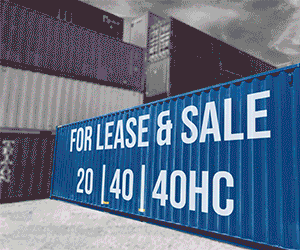New policies can be rolled out quickly across the system which cuts down on training time for employees

In a worsening global environment, economies in the Middle East are being impacted by rocketing food and energy prices, according to the International Monetary Fund. This has resulted in businesses and employees both feeling the pinch, leading budgets, expenses, and salaries to become a point of contention within the workplace.
Gabriele Indrieri, VP & Managing Director, SAP Concur EMEA South, in this contribution for LogisticsGulfNews.com says that this is evident especially with employers trying to make cutbacks to survive, while employees are looking to increase their salaries as much as possible to cover the rising cost of everyday life.
This workplace tension has led to expense management processes being placed under the spotlight.
For example, businesses are considering which policies need to be adjusted to account for the current climate and to support employees. They are also looking at whether reimbursement timelines can be shortened to ensure staff aren’t out of pocket without causing human error.
To help with this process in light of the economic downturn, I refer to a recent survey conducted by SAP Concur which asked decision-makers what the expense management landscape looked like in their business, including the challenges and their future goals.
Below, I outline how automation is fast-becoming critical to addressing the challenges that have arisen from the cost-of-living crisis.
The necessity of automation
A lot of the current expense processes are long-winded, manual, and stressful. It’s these poor user experiences that have prompted a big appetite for automation. Currently, half of employees believe automation would simplify their efforts in claiming expenses, and 51% of finance and HR decision-makers similarly agree that they’re relying far too much on manual processes which aren’t suited to hybrid working.
With an automated process, that employees can easily upload photos of receipts to a centralised system, without the need for form-filling. From there, automation can filter claims against company policies before being checked over by staff.
Beyond making for an easy, intuitive, and fast service, automation has the capability to tackle some of the biggest challenges surrounding current expense management.
Firstly, new policies can be rolled out quickly across the system which cuts down on training time for employees who would have done this manually. This is particularly helpful as businesses begin to adapt their expense policies to those suited for the modern-day remote workplace.
Secondly, automation leaves little room for error in terms of checking expenses against policies. It also means that expenses can be compliance checked at a much faster rate, saving the finance department valuable time to dedicate elsewhere, and ensuring employees are reimbursed quickly.
Investments with a quick ROI in a tumultuous financial period
Despite the evident benefits of automation for successful expense management, Indrieri points out that it’s not always easy to justify its investment – especially during financially testing times.
Two of the most common barriers to implementing automation within finance teams is a lack of buy-in from key stakeholders and a lack of perceived value for money. Understandably, key stakeholders are hesitant to spend money when their focus is on tightening the purse strings. In addition, if employees don’t realise the full benefits of automation, they’re unlikely to invest time in learning how to use it or understand the advantages it could bring.
The first action businesses should take when considering implementing automation is not the investment itself, but education. It’s all about ensuring everyone in the business understands that great employee expense management bolstered by automation can enable compliance, employee satisfaction, and efficient, cost-effective expense processing.
If leaders can communicate these advantages, they will be in a much stronger position to gain support in using automation. This will shape the expense management needed to operate successfully in today’s volatile business environment, bringing further long-term benefits with it.
Want to stay updated on the latest industry news and trends? Subscribe today to receive your monthly news highlights directly in your inbox!










